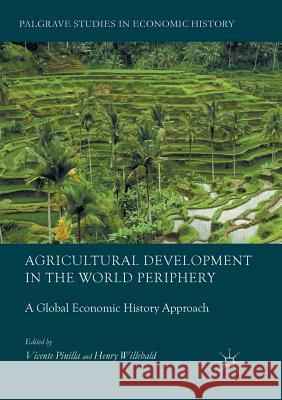Agricultural Development in the World Periphery: A Global Economic History Approach » książka
topmenu
Agricultural Development in the World Periphery: A Global Economic History Approach
ISBN-13: 9783319881553 / Angielski / Miękka / 2019 / 507 str.
Kategorie:
Kategorie BISAC:
Wydawca:
Palgrave MacMillan
Seria wydawnicza:
Język:
Angielski
ISBN-13:
9783319881553
Rok wydania:
2019
Wydanie:
Softcover Repri
Ilość stron:
507
Waga:
0.63 kg
Wymiary:
21.01 x 14.81 x 2.74
Oprawa:
Miękka
Wolumenów:
01
Dodatkowe informacje:
Wydanie ilustrowane











